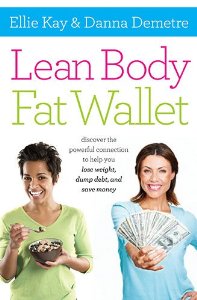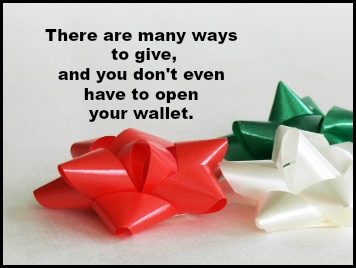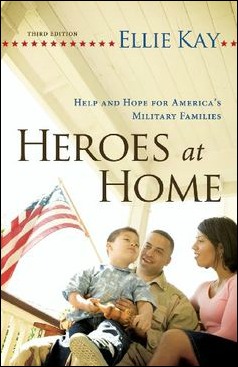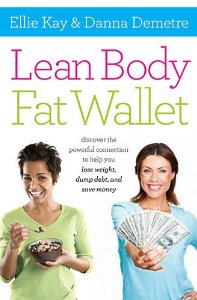Smart Women and Financial Choices
Known as "America's Family Financial Expert,"® Ellie Kay walks her own financial talk. She knows the power of following clear financial principles. In this Financial UPGRADE, she suggests wise tips to help women become more money savvy.
women become more money savvy.
Ellie asks, “Would you like to make smarter decisions when it comes to money matters? Think about the woman who ‘considers a field and buys it: with the fruit of her hands she plants a vineyard’ (Proverbs 31:16). She’s smart!”
I (Dawn) know the Bible has a wealth of wisdom regarding finances* and Ellie has some great tips to encourage the wisdom process too.
Ellie continues . . .
When I was a young bride, I was overwhelmed in learning how to manage a household. I didn’t even know how to cook and I remember asking my mom how to boil an egg.
She said, “Boil it until it floats.” I had no idea she was joking, and I boiled it for an hour until the water evaporated and the eggs exploded. They never floated.
Today, I have young millennial daughters and daughters-in-law who are learning to manage their own homes, and I developed guidelines that can help them a little more proactively than my mom’s advice helped me.
Here are my top ten tips for women to make better financial choices.
1. Avoid Emotional Spending.
Never shop online or in the store when you are depressed, sad or lonely because you are far more likely to engage in “shopping therapy” and overspend.
2. Show Love through Actions and Not Things.
If you have a love language of gift giving, or if you tend to show love to others by what you buy for them, then you may want to shift your point of view and save your budget in the process.
3. Volunteer Often.
Those people who have the best balance in their financial lives understand how fortunate they are by giving back to their communities.
4. Err On The Side of Generosity.
By following the principle of tithing 10% of your income, you invite God’s blessing upon your money matters and live a more abundant financial life.
If you are going to err, don’t let it be on the side of stinginess, but let it be on the side of generosity.
5. Ask Yourself, "Is This a Need or A Want?"
Most of us do not have unlimited financial resources and for every purchase we make, it’s wise to ask ourselves this question BEFORE we buy.
6. Play the Waiting Game.
In order to avoid impulse buying, when you see something on sale in the mall or online, wait 24 hours to purchase it. This helps you get beyond the impulse to see if it’s something you truly need.
7. Have A Money Buddy.
Accountability is a wonderful thing.
Every woman should have a person who can ask the hard questions about sticking to your budget, paying down consumer debt, or funding a retirement. In community, you are far more likely to keep your financial commitments towards good stewardship.
8. Become a Master Saver.
The Millionaire next door rarely pays full price on anything when they can save money. Read money savings blogs, download apps for coupon codes, and be prepared to compare prices on goods and services.
9. Become Comfortable with Negotiation.
Whether you are negotiating the price of a car or the bid on painting your house, you have to feel it’s the best deal for you.
Tell the other person, "I don’t feel comfortable with that price," and then be quiet. I’ve found that nine out of 10 times, I’ll get a counterbid that is something I feel more comfortable with; and if I don’t, then I feel the freedom to walk away.
10. Pray about Money Matters.
Recent PEW Research indicates that 80% of Americans admit to praying weekly or even daily. Even a financial expert like myself needs to pray to be make wise financial decisions, that people won’t be able to take financial advantage of me and that I’ll be able to find the best provision for my budget.
When in doubt, pray.
Which of these steps do you already practice and which ones can you implement today?
 Ellie Kay is the best-selling author of fifteen books including Lean Body, Fat Wallet (with Danna Demetre), and Heroes at Home. She is a Toastmaster Accredited Speaker as well as a popular international speaker and media veteran who has given over1,200
Ellie Kay is the best-selling author of fifteen books including Lean Body, Fat Wallet (with Danna Demetre), and Heroes at Home. She is a Toastmaster Accredited Speaker as well as a popular international speaker and media veteran who has given over1,200  media interviews including appearances on ABC, CNBC, CNN and Fox News. As a popular columnist, she writes for six national magazines and has been a Subject Matter Expert for the Wall Street Journal, New York Times and Washington Post. Currently, Ellie provides financial education to military members through her “Heroes at Home Financial Event” sponsored for USAA. Ellie is married to LTC Bob Kay and they have seven children.
media interviews including appearances on ABC, CNBC, CNN and Fox News. As a popular columnist, she writes for six national magazines and has been a Subject Matter Expert for the Wall Street Journal, New York Times and Washington Post. Currently, Ellie provides financial education to military members through her “Heroes at Home Financial Event” sponsored for USAA. Ellie is married to LTC Bob Kay and they have seven children.
* Some Key Scriptures about finances: Matthew 6:24-25, 33; Philippians 4:11-13; Luke 12:15; Psalm 37:21; Mark 8:36; Proverbs 15:27; 22:7; 1 Timothy 6:6-10, 17-19; Philippians 4:19; Malachi 3:10; Acts 20:35; 2 Corinthians 9:6-7).
Graphic adapted, courtesy of Luxstorm at Pixabay.
 Post a Comment → Posted on
Post a Comment → Posted on  Thursday, June 8, 2017 at 7:41AM
Thursday, June 8, 2017 at 7:41AM  Accountability,
Accountability,  Ellie Kay,
Ellie Kay,  Emotional Spending,
Emotional Spending,  Finances,
Finances,  Financial Choices,
Financial Choices,  Financial Expert,
Financial Expert,  Generosity,
Generosity,  Money Matters,
Money Matters,  Money Savvy,
Money Savvy,  Saving money,
Saving money,  Tithing,
Tithing,  Upgrade with Dawn Upgrade Your Life
Upgrade with Dawn Upgrade Your Life  Finances
Finances 
















